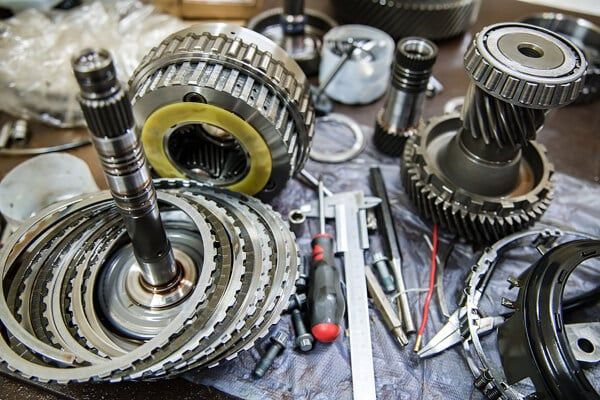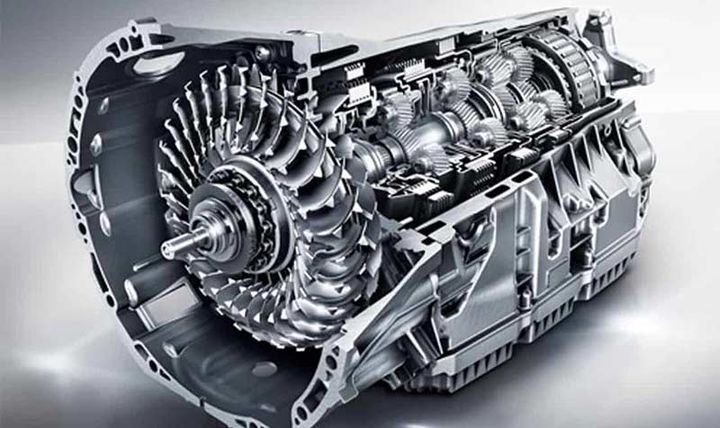


Maintaining your vehicle's transmission is crucial for ensuring smooth operation and longevity. However, transmissions can wear down over time, necessitating a rebuild or replacement. This comprehensive guide delves into the intricacies of transmission rebuild costs, exploring factors that influence pricing, cost-saving strategies, and maintenance practices to help you make informed decisions about your car's well-being.
A transmission rebuild is a complex process that involves disassembling the entire unit, inspecting its components, and replacing worn or damaged parts. This intricate procedure aims to restore the transmission's functionality and performance, often at a lower cost than a complete replacement.

Here's a table summarizing the average cost range for a transmission rebuild:
| Transmission Rebuild Cost | Range |
|---|---|
| Average | $1,500 - $3,500 |
| Complex or Luxury Vehicles | $3,500 - $5,000+ |
Several factors influence the overall cost, including:
Vehicle make, model, and year
Type of transmission (manual or automatic)
Extent of damage or wear
Labor costs
Quality of parts used
Automatic transmissions, with their intricate design and numerous components, generally demand higher rebuild costs compared to their manual counterparts. Similarly, luxury vehicles and specialized transmissions often require more expensive parts and labor, driving up the overall expense.
When faced with transmission issues, car owners must weigh the pros and cons of a rebuild versus a complete replacement. Rebuilding is often the more cost-effective option if the transmission's damage is not extensive. However, if the transmission is severely damaged or the vehicle is older, a replacement may be the better choice, especially if you plan to keep the vehicle for an extended period.
Here's a comparison of transmission rebuild and replacement costs:
| Repair Option | Cost Range |
|---|---|
| Rebuild | $1,500 - $5,000+ |
| Replacement | $2,000 - $6,000+ |
The cost of a transmission replacement can range from $2,000 to $6,000 or more, depending on the vehicle and transmission type. While more expensive upfront, a replacement may be the wiser investment for an aging vehicle, as it provides a fresh start with a new or remanufactured unit.
When deciding between a rebuild or replacement, consider factors such as:
Vehicle's age
Mileage
Overall condition
Long-term ownership plans
Budget
Addressing transmission issues promptly is crucial to prevent further damage and more costly repairs. Be vigilant for the following signs that may indicate the need for a transmission rebuild:
Slipping gears or difficulty shifting
Grinding or whining noises during gear changes
Leaking transmission fluid
Delayed or rough gear engagement
Warning lights on the dashboard
These symptoms can signify more severe transmission problems that require immediate attention from a qualified technician.
Slipping gears or difficulty shifting can be a telltale sign of worn clutches, low fluid levels, or internal component damage. Grinding or whining noises during gear changes may indicate worn bearings or gear problems, while leaking transmission fluid can lead to further issues if left unaddressed.
Delayed or rough gear engagement, as well as warning lights on the dashboard, should never be ignored. These symptoms can signify more severe transmission problems that require immediate attention from a qualified technician.
Selecting a reputable and experienced transmission shop is paramount when undertaking a rebuild. Here are some tips for choosing a trustworthy shop:
Seek recommendations from friends, family, or online reviews
Research the shop's certifications, warranties, and guarantees
Inquire about the technicians' experience and training
Verify the use of high-quality OEM or reputable aftermarket parts
Compare quotes from multiple shops for fair pricing
Ensure the shop provides a comprehensive warranty
A trustworthy establishment will provide transparent pricing and stand behind their work with a comprehensive warranty.
While transmission rebuilds can be expensive, there are several strategies to potentially reduce costs:

Do some work yourself (e.g., removing and reinstalling the transmission) if you have mechanical skills
Shop around for the best prices on parts and labor
Explore the option of purchasing a used or remanufactured transmission
Maintain your vehicle regularly to extend the transmission's lifespan
If you possess mechanical skills, consider doing some of the work yourself, such as removing and reinstalling the transmission. This can save on labor costs, but exercise caution and follow proper procedures to avoid further damage.
Shop around for the best prices on parts and labor, and explore the option of purchasing a used or remanufactured transmission. While these alternatives may be more affordable, ensure they come from reputable sources and carry appropriate warranties.
Maintaining your vehicle regularly is also crucial for extending the transmission's lifespan and preventing costly repairs. Follow the recommended maintenance schedule, including regular fluid changes and inspections, and be mindful of your driving habits, as aggressive driving can accelerate transmission wear.
Regular maintenance is the key to preventing costly transmission repairs and extending the lifespan of your vehicle's transmission. Here's what you should do:
Adhere to the manufacturer's recommended maintenance schedule
Perform periodic transmission fluid changes and inspections
Adopt a smooth and mindful driving style
Your driving habits also play a significant role in the longevity of your transmission. Aggressive driving, such as rapid acceleration and hard braking, can put excessive strain on the transmission and accelerate wear.
By addressing transmission issues promptly, choosing a reputable repair shop, and following proper maintenance practices, you can ensure your vehicle's transmission operates smoothly and efficiently for years to come.
Transmission rebuilds can be a significant investment, but understanding the costs and factors involved can help you make an informed decision. By addressing issues promptly, choosing a reputable shop, and following proper maintenance practices, you can ensure your vehicle's transmission operates smoothly and efficiently for years to come, ultimately saving you money and hassle in the long run.
A transmission rebuild involves disassembling the existing unit, replacing worn parts, and reassembling it. A replacement involves installing a new or remanufactured transmission unit.
The rebuild process can take anywhere from a few days to a week or more, depending on the extent of the work required and the shop's workload.
No, driving with a faulty transmission can cause further damage and lead to costly repairs or even complete failure. It's best to have it inspected and repaired promptly.
Common signs include slipping gears, grinding noises, leaking fluid, delayed engagement, and warning lights on the dashboard.
Follow the manufacturer's recommended maintenance schedule, which typically calls for fluid changes every 30,000 to 100,000 miles, depending on the vehicle.
While possible for experienced mechanics, rebuilding a transmission is a complex task that requires specialized tools and knowledge. It's generally recommended to have it done by a professional.
Reputable shops typically offer warranties ranging from 12 months to 36 months or more, depending on the shop and the work performed.
Regular maintenance, smooth driving habits, and avoiding excessive strain on the transmission can help extend its lifespan.
For older vehicles with high mileage, a replacement may be the better option, as it provides a fresh start with a new or remanufactured unit.
Yes, used or remanufactured transmissions can be a more affordable option, but ensure they come from reputable sources and carry appropriate warranties.

Sarah isn't your average gearhead. With a double major in Mechanical Engineering and Automotive Technology, she dived straight into the world of car repair. After 15 years of turning wrenches at dealerships and independent shops, Sarah joined MICDOT to share her expertise and passion for making cars run like new. Her in-depth knowledge and knack for explaining complex issues in simple terms make her a valuable asset to our team.





